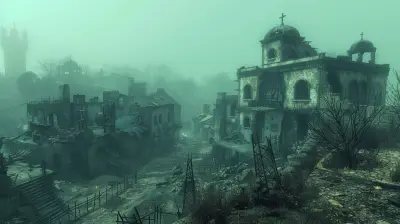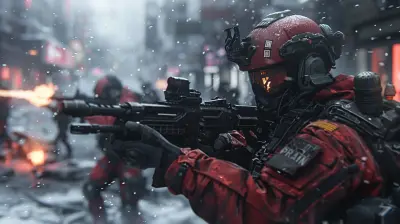Game Music vs. Film Scores: What Makes Them Different
15 September 2025
Let’s be real—music is powerful. Whether you're walking through a sunlit forest in a video game or watching an epic battle unfold on the silver screen, music is the secret sauce that pulls you in and makes the moment unforgettable. But have you ever sat back and wondered: how exactly is game music different from film scores?
At first glance, they might seem pretty similar. Both are crafted to enhance a story, stir emotions, and support the experience. But under the hood? They’re doing very different jobs. It’s kind of like comparing a Swiss Army knife to a chef’s knife—both cut stuff, but they’re designed for totally different environments.
So grab your headphones, because we’re diving deep into the world of game music vs. film scores, and what really makes them tick in their own unique ways.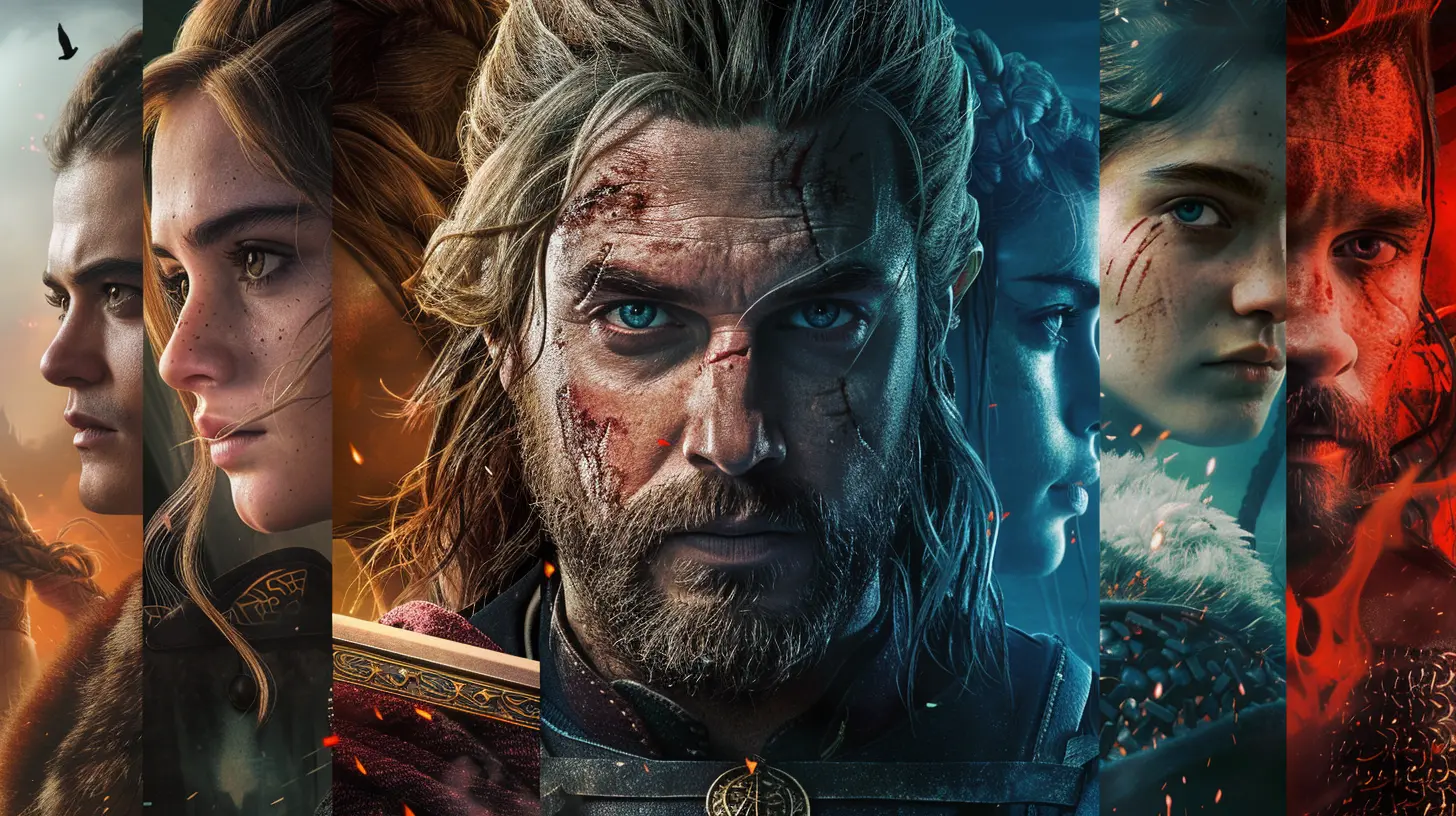
🎵 What Do Game Music and Film Scores Actually Do?
Let’s kick things off with the basics.Both game music and film scores serve one big purpose: storytelling. They’re not just background noise; they guide your feelings, hint at what's to come, and create a vibe so strong, you could recognize the movie or game from a few notes alone.
Think of John Williams’ iconic score in Star Wars or Koji Kondo’s cheerful opening theme in Super Mario Bros. You can't hear those without instantly being transported, right?
But even though they do similar jobs, how they do those jobs is where the magic (and the difference) happens.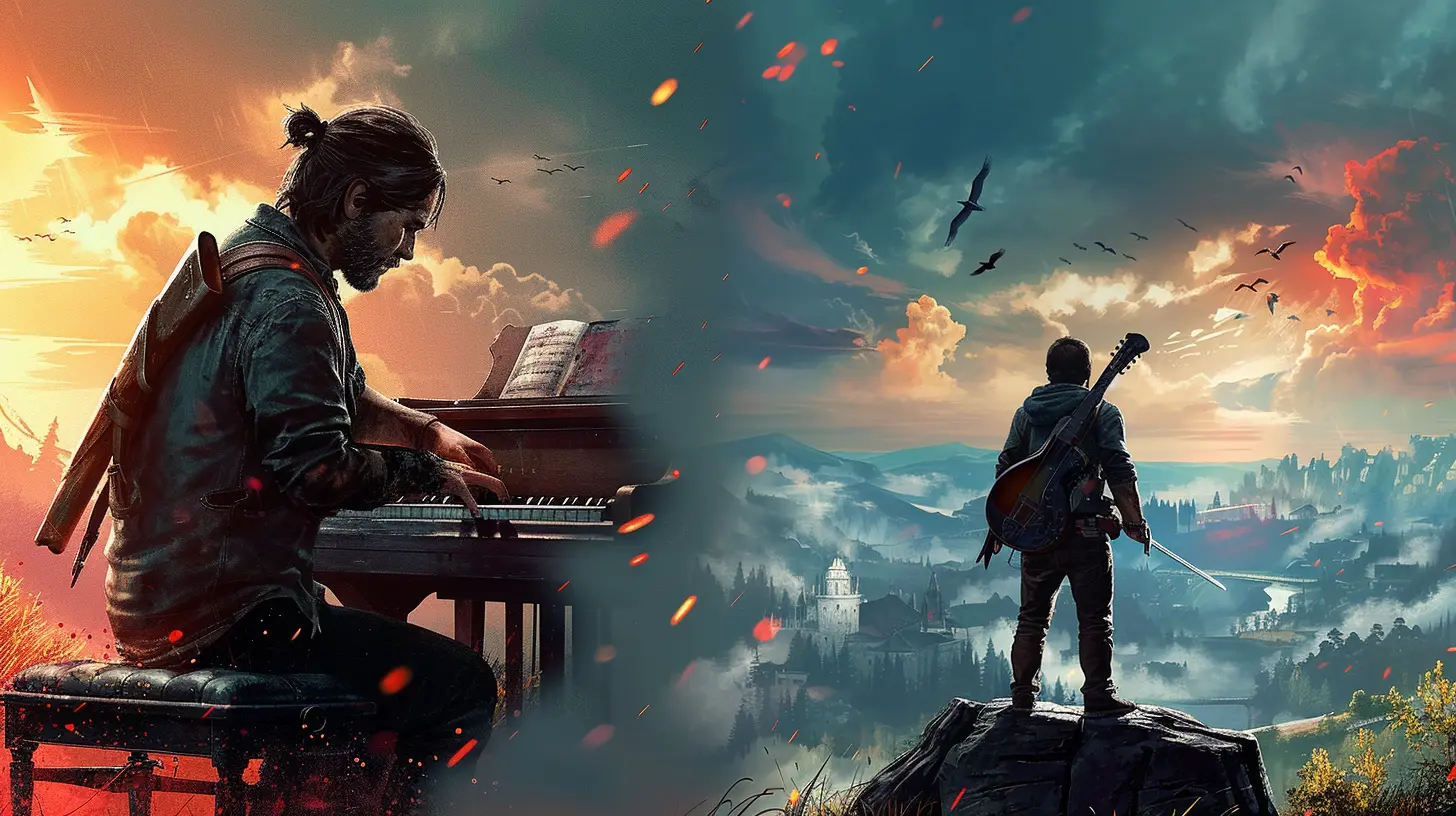
🎮 Interactivity: The Game Changer for Game Music
Here’s where things start to split—interactivity.In a movie, everything is locked in. The director knows exactly what’s going to happen and when. So the composer can time every goosebump-inducing swell of violins or pounding drumbeat to the exact millisecond.
But in a game? Nada. Developers have no clue when (or even if) you'll open the next door, fight that boss, or spend 20 minutes just staring at clouds.
Dynamic vs. Linear Music
Film scores are mostly linear. They go from Point A to Point B in a straight line. Game music, on the other hand, has to be dynamic. It twists and bends depending on what you’re doing.Let’s say you’re sneaking through a dark dungeon in a stealth game. The music might be minimal—a soft hum, maybe a few suspenseful strings. But the moment you're spotted? BAM! The track morphs into a full-blown action theme.
This kind of reactive, branching system is what makes video game music so uniquely challenging.
🎬 Timing and Control: Movies Have the Upper Hand
Because a film follows a script with precise timing, composers have the luxury of scoring each frame. Everything is planned, choreographed, and predictable. The result? Seamless emotional beats.They can use techniques like:
- Leitmotifs (themes for characters or ideas)
- Crescendos leading into dramatic moments
- Echoes of previous songs to trigger nostalgia or suspense
In fact, some film scenes are edited to the music—not the other way around! It’s a tightly synchronized dance.
Game composers? They don’t get that control. They have to compose music that breathes with player freedom. That’s like trying to score a movie when you don’t know which order the scenes will happen in.
No pressure, right?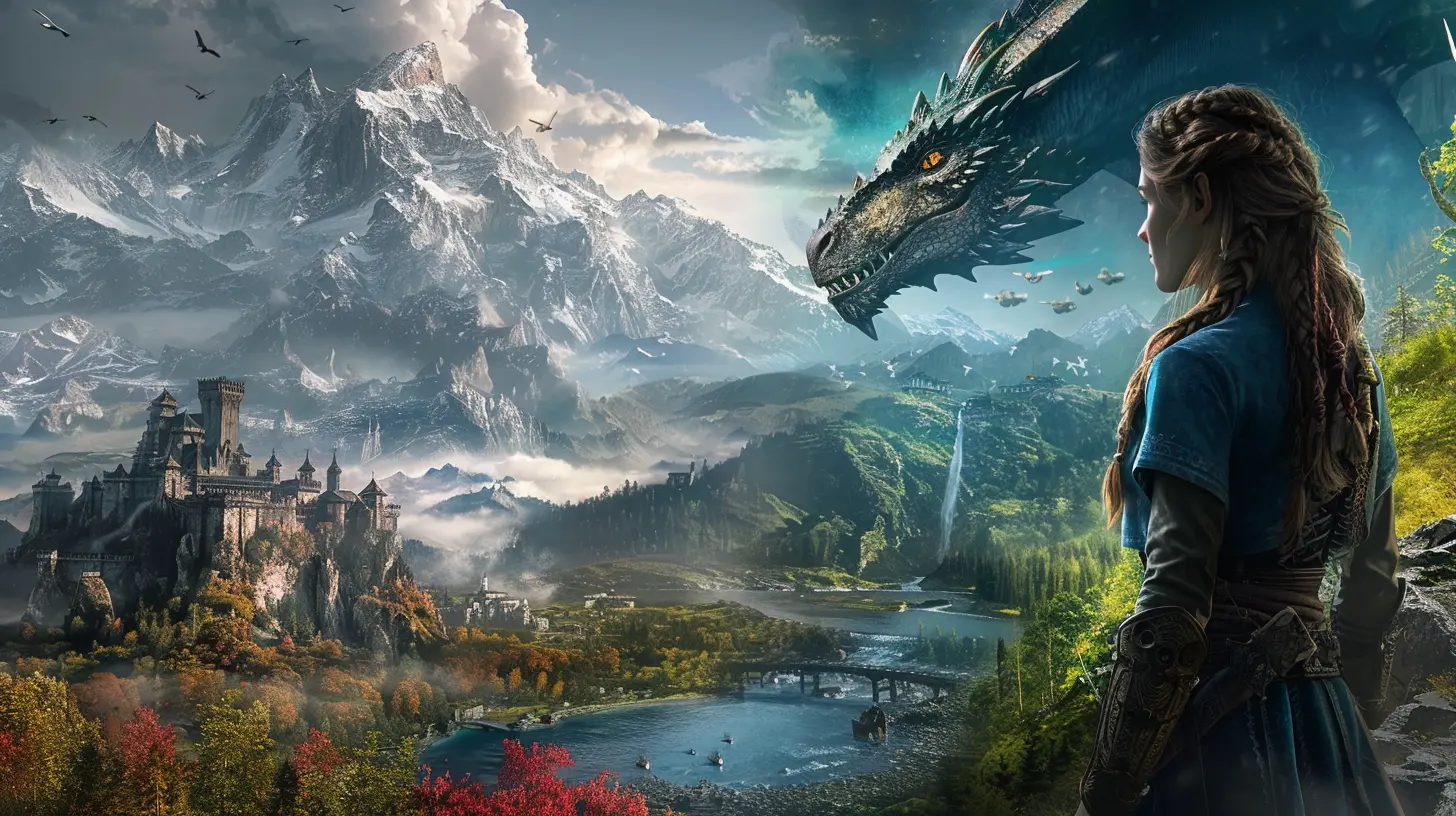
🧠 The Brain Game: How Our Minds Perceive Game and Film Music Differently
Let’s get a little nerdy for a second. The way our brains process music is heavily influenced by our activity.When we watch a movie, we’re passive. We sit back and absorb. Music hits us directly, making our emotional reactions sharper and more immediate.
But when you’re gaming? You’re active. Focused. Making decisions. Your brain doesn’t pay as much attention to the music, at least not consciously.
That means game music has to walk a fine line. It needs to be emotionally powerful without pulling you out of the gameplay.
It’s like a good friend at a party—engaging when you need them, but not stealing the spotlight.
🔄 Looping: The Unsung Hero of Game Music
Imagine this: you’re stuck on a boss fight for 45 minutes. (We’ve all been there.) Now imagine hearing the exact same 3-minute theme over and over and over...Sounds painful, right?
That’s why game music has to loop—seamlessly. You often don’t even notice when a track starts over. That’s intentional. Composers design game music to endlessly cycle without feeling repetitive or annoying.
Film music doesn’t have to worry about that. It plays once and it's done.
And don’t even get me started on adaptive layering—where different musical layers fade in or out based on the situation. That’s next-level stuff, and it’s a game-specific technique that movies just don’t use.
🎧 Musical Complexity: It’s Not a Competition, But…
Now you might be wondering: “Which one is more complex?”Truth is, they’re just complex in different ways.
Film scores often go big—full orchestras, intricate motifs, evolving themes. They're masterpieces of cinematic expression.
But that doesn’t mean game music is any less sophisticated. Just ask anyone who’s played through NieR: Automata, The Legend of Zelda: Breath of the Wild, or The Last of Us. These soundtracks are emotional, layered, and beautifully composed.
The difference? Game music has to be modular. It’s made in chunks and loops, often consisting of multiple variants of the same piece to suit different gameplay states.
It’s like building musical Lego pieces instead of sculpting marble statues. Both take skill—just different types.
🕹️ Player Agency: Music That Reacts to YOU
One of the coolest things about game music is that it reacts to you.Your choices can influence what music plays, how it builds, and when it shifts completely. Some RPGs even let your in-game decisions influence the soundtrack’s tone long-term.
In a film, the story is fixed. Sure, the music can be emotional. But it’s never personal.
Games make the music personal.
Think about when you win a hard-fought battle and that triumphant theme kicks in—just for you. You earned that moment. It’s not handed to you like in a movie. That feeling is powerful.
🎹 Composers Need Different Mindsets
Composing for games and films requires very different approaches.Film composers work closely with directors and editors, matching music to specific scenes and timings. They’re like tailors crafting a bespoke suit.
Game composers? They’re more like engineers. They have to think in systems, possibilities, and contingencies. They're not just writing music—they're designing an experience.
And because games come in all genres, styles, and settings (sci-fi, fantasy, pixel art, horror—you name it), versatility is key.
🧪 Experimental Edge: Games Encourage More Risk-Taking
One area where game music tends to push boundaries? Experimentation.Because of the interactive nature—and sometimes lower stakes in indie titles—game composers have room to try weird, wild, and wonderful things.
Ever heard the minimalist ambient soundtrack of Minecraft? Or the glitchy drumbeat chaos in Hotline Miami? These tracks wouldn’t fly in most conventional films, but in games? They feel right at home.
There’s a freedom in game music to break the rules—and that creativity is infectious.
💿 The Soundtrack Legacy: Which One Sticks Around?
Let’s not forget about the aftermath—who still hums along once the screen goes dark?Both game and film scores can have long-lasting fan love, but let’s face it, video game soundtracks have a massive staying power in pop culture.
Think about all the remixes, YouTube covers, and full-blown concerts like "Video Games Live." Game music has become a genre in itself. You don't see many people remixing the score to The Notebook, do you?
🚀 So, What Makes Them Different?
Let’s recap.| Feature | Film Scores | Game Music |
|---------------------------|------------------------------------------|----------------------------------------|
| Based On | Fixed timeline | Player's actions |
| Structure | Linear | Dynamic/looping |
| Timing Control | Full control over timing | No control (depends on player) |
| Emotional Impact | Direct and immediate | Subtle and adaptive |
| Complexity | Thematic and orchestral | Layered and modular |
| Player Interaction | None | Full interactivity |
| Risk-Taking | Less common | Frequently experimental |
Both forms are incredible in their own right, but they’re built with different purposes in mind. Film scores are like a guided tour through emotion, while game music is more of a soundtrack to your journey.
They’re equally valuable, just tuned to different frequencies.
🧡 Final Thoughts
At the end of the day, whether it’s soaring violins or pixelated beeps, music makes the experience. Without it, even the most beautiful scenes or intense gameplay can fall flat.So next time you’re deep in a boss fight or tearing up at a movie ending, take a second to appreciate the invisible hand guiding your emotions.
It might just be the unsung hero of the moment.
all images in this post were generated using AI tools
Category:
Game SoundtracksAuthor:

Audrey McGhee
Discussion
rate this article
2 comments
Rosanna McKenzie
While both game music and film scores evoke emotions, their impact diverges in interactivity. Game music adapts to player choices, creating a dynamic experience, whereas film scores guide a predetermined narrative. This distinction reveals how sound influences engagement and emotional investment in unique ways.
December 9, 2025 at 5:24 AM

Audrey McGhee
Thank you for highlighting the key difference! The interactivity of game music indeed enhances player immersion, while film scores expertly shape the viewer's emotional journey within a fixed narrative. Both forms are powerful but serve distinct purposes.
Lennox McIntyre
Game music and film scores serve distinct purposes; while film scores enhance narrative immersion, game music actively engages players, adapting to their actions and choices. This interactivity makes game soundtracks a unique and dynamic storytelling tool in their own right.
September 18, 2025 at 3:14 AM

Audrey McGhee
You make an excellent point! Game music's interactivity truly sets it apart, allowing players to shape the narrative experience through their choices. It's a fascinating aspect that highlights the unique role of soundtracks in gaming.
